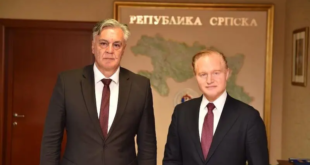Author: Anes Alic for ISA Intel.
Six Bosnian political parties who won the majority of votes in October 2010 elections and are eligible to form the new government issued a total of 1,373 campaign promises, most of which will remained unfulfilled and forgotten.
With 432 elections promises, the main Bosniak Party of Democratic Action (SDA) is the absolute champion of the pre-election campaign. Interestingly enough, the most popular Bosnian party, the Union of Independent Social Democrats (SNSD) led by Bosnian Serb Milorad Dodik, issued the fewest promises, around 200.
Unlike the SDA and some other parties who did not shy away from making campaign pledges, including plenty that would be impossible to achieve, SNSD officials focused mostly on the country’s Serb-dominated entity of Republika Srpska and its wellbeing, putting EU integrations and economic reform lower down on the agenda.
The bulk of the campaign promises, some 900, came from four parties in the country’s Federation entity – parties which formed the entity government under the framework of a document entitled “A Platform for the Creation of the Federation and State Institutions”.
As June passed and Poland took over the EU presidency, one of the key foundations the Platform failed: The first chapter of the Platform concerns EU integration and calls for Bosnia to submit its membership application in June in order to obtain EU Candidate Member status by the end of 2012.
This failure, however, did not produce any reaction from Bosnian citizens, i.e. the electorate, which has become disillusioned to the point of indifference. Bosnian politicians have a tendency to promise their voters just about anything, regardless of reality.
In fact, in Bosnia and Herzegovina, the fulfillment of elections promises hovers at about 5 percent, though this does not keep voters from making the same choices time and again. The popularity of most of the Bosnian political parties has never been measured by achievements, rather by ethnic rhetoric – perceived notions of ethnic protection and security are prioritized above EU integration, reform and economic stability.
Studies conducted by local NGOs following the 2006 general elections show that the five parties in power implemented 18 out of 367 of their election promises.
The formation of the state government and institutions without an acceptable timeframe was not an election promise; still, those parties must be held accountable for the failure to form a government 10 months after the vote.
Those six parties which managed to form the entity governments (three months ago in the Federation and nearly half year ago in Republika Srpska) have also managed to avoid producing any agreement to form state institutions.
Most likely the state government will not be formed before autumn under the most optimistic scenario – one year after elections – particularly due to the fact that the next two months are reserved for summer vacations.
Even once the state institutions are formed, the authorities face insurmountable challenges to fulfill several key EU requirements that have eluded compromise for years.
Although the authorities are hoping that the EU will be soft its stance once the central institutions are up and running (as if the formation of a government is a grand achievement in and of itself) the international community has indicated that will not be the case.
One of the main obstacles (though to an outsider it would seem relatively easy to implement), remains the European Court of Human Rights ruling that Bosnia must change its constitution to end discrimination against minorities.
This was to be done before the October 2010 elections, but was not, despite several rounds of EU-US initiated constitutional reform talks.
Bosnia’s EU membership is also in limbo, and Brussels is clearly not willing to make the same mistake it made with Romania and Bulgaria – accepting membership applications from countries that are clearly not prepared to fight corruption or to push through key reforms for political and economic stability.
 Eurasia Press & News
Eurasia Press & News



